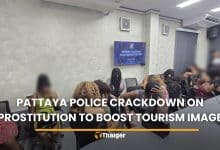Why is Thai sex tourism so famous worldwide despite being illegal?
The complex mix of law, morality, and demand behind Thailand’s sex industry
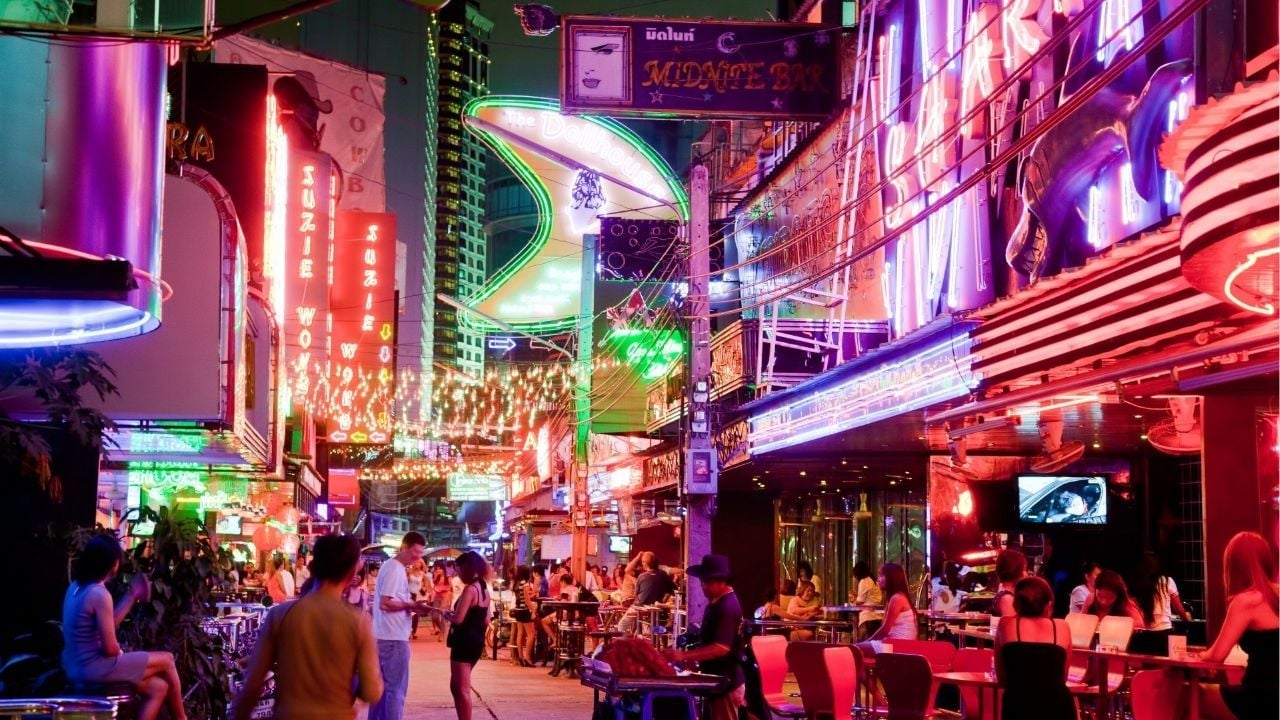
The Thaiger key takeaways
- Thai sex tourism remains highly visible internationally despite being illegal, fueled by economic demand, historical factors, and tolerance within certain legal grey zones.
- Red-light districts in Bangkok, Pattaya, Phuket, and Hat Yai dominate the scene, while rural poverty and limited opportunities have historically driven participation in the industry.
- Legal enforcement is inconsistent, and ongoing debates around regulation highlight the tension between cultural norms, morality, and economic pragmatism.
Sex tourism in Thailand is an open secret. Despite being illegal, it’s one of the country’s most enduring international reputations. Tourists from all over the world arrive with more than temples and street food on their minds, and Thailand’s red-light districts continue to thrive in the shadows of legal grey areas. How did this come to be? Why does it persist? And what, if anything, is being done about it?
On this page
| Section (Click to jump) | Summary |
|---|---|
| The economic shadow of sex tourism | Sex tourism, though illegal, generates an estimated US$6.4B annually, forming a significant shadow economy in Thailand alongside mainstream tourism. |
| Legal grey zones and bribery | Prostitution is technically illegal, but inconsistent enforcement and bribes allow many venues to operate discreetly, highlighting moral and cultural contradictions. |
| The ongoing legal debate | Calls for regulation aim to improve safety, healthcare, and taxation, but opposition based on Buddhist values keeps sex work in a legal limbo. |
The economic shadow of sex tourism
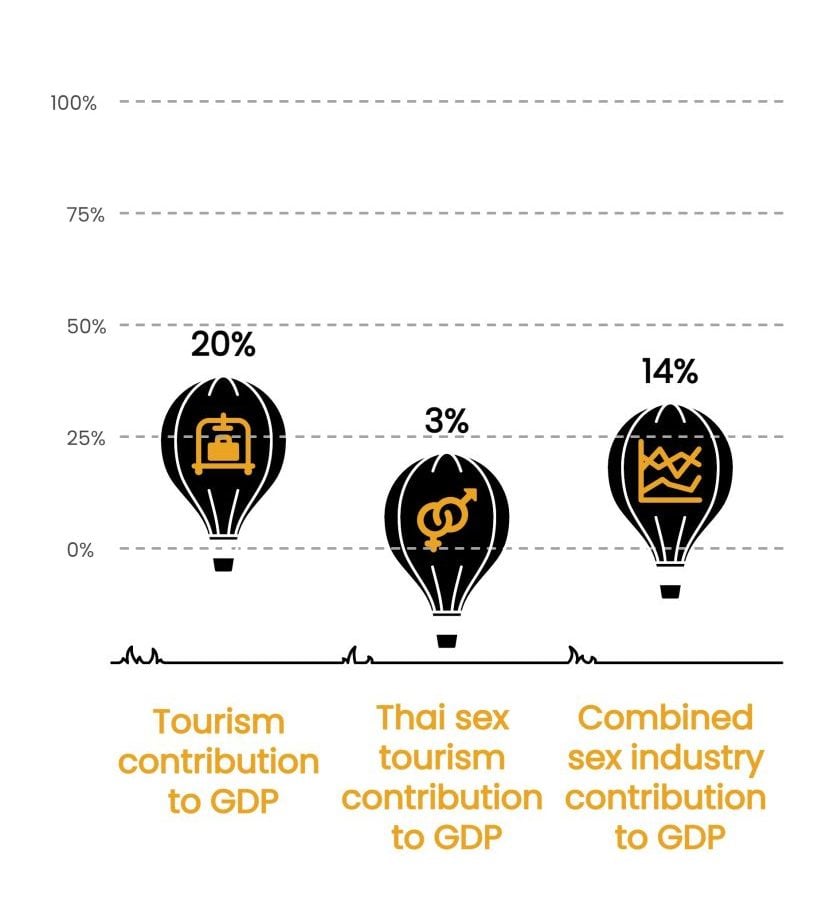
Tourism has long been a pillar of the Thai economy, accounting for roughly 20% of GDP in 2019. That same year, Thailand welcomed nearly 40 million international visitors, generating approximately US$60.5 billion in revenue. Officially, this income is linked to cultural, culinary, and natural attractions.
Unofficially, Thai sex tourism plays a substantial role. Although illegal, it is estimated to generate about US$6.4 billion annually, or around 3% of the country’s GDP. Some studies even suggest the combined domestic and international sex industry may account for as much as 14% of GDP, depending on how one calculates underground and indirect activities. Regardless of the figures, the shadow economy of sex work is significant.
Where it happens: Thailand’s red-light districts
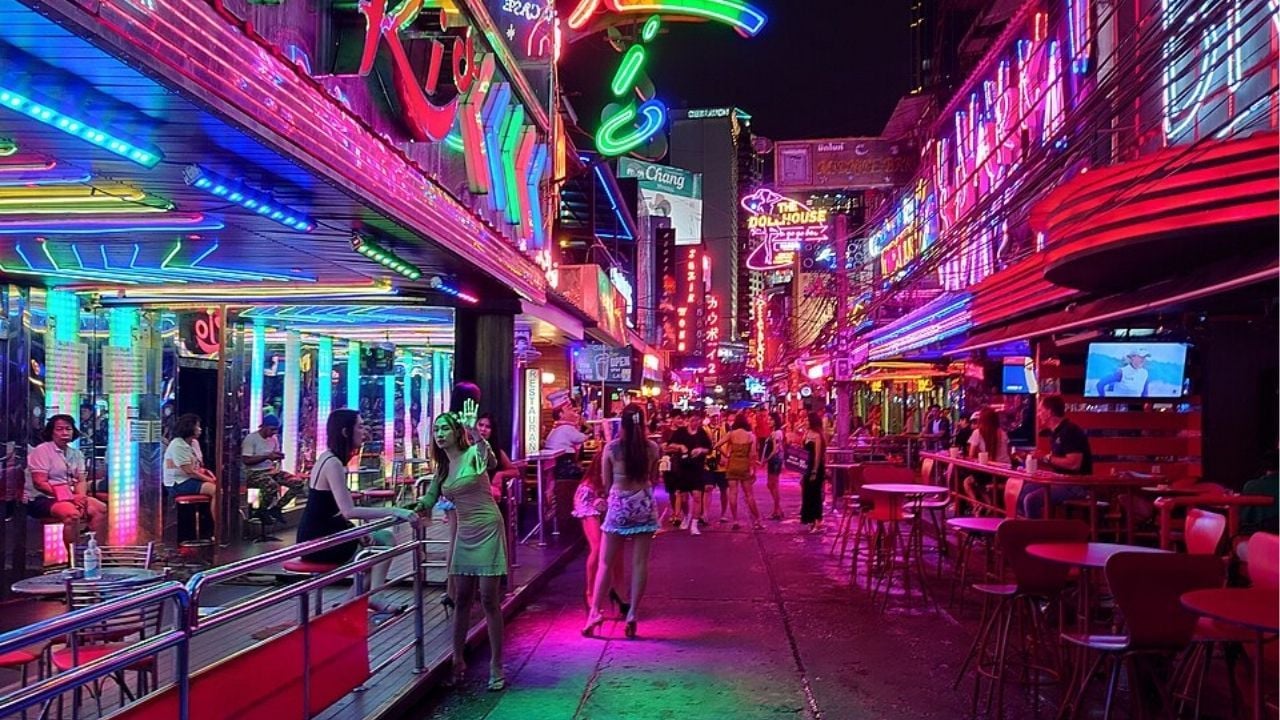
In Bangkok, the infamous trio of Soi Cowboy, Nana Plaza, and Patpong dominate the Thai sex tourism landscape. These areas are lined with go-go bars and adult entertainment venues, operating under the thin veil of nightlife establishments. Customers know what they’re there for. So do the staff. And so do the authorities, who often turn a blind eye.
In Pattaya, Walking Street is a neon-lit theatre of desire, known globally for its go-go clubs, bars, and live shows. The so-called “ping pong shows” have become infamous in their own right, drawing curious tourists and repeat visitors alike.
Phuket’s Patong Beach and Hat Yai in Songkhla province also cater to this kind of tourism, serving slightly different international demographics. Sex work here often takes place in karaoke bars, massage parlours, spas, and beer bars registered as normal entertainment businesses. Off-menu services are arranged between customers and workers with plausible deniability from the establishment owners.
A history rooted in war and poverty

Thailand’s reputation as a sex tourism destination dates back to the Vietnam War. In the 1960s and 70s, the Kingdom served as a rest-and-recreation base for U.S. soldiers, leading to an explosion of brothels, bars, and entertainment venues in cities like Bangkok and Pattaya.
Post-war, economic challenges in rural regions, especially in the northeast (Isaan), drove many women to seek income through sex work. Reports indicate that over 70% of Thai sex workers originate from rural areas, collectively sending home hundreds of millions of dollars annually.
While the war may have sparked the fire, it was poverty and inequality that kept it burning.
Legal grey zones and bribery
Prostitution is illegal under the Prevention and Suppression of Prostitution Act (1996). However, the law is specific: consensual sex for money isn’t directly criminalised, but soliciting in public, advertising services, and operating a venue for prostitution are.
Penalties range from small fines to up to 10 years in prison. Crimes involving minors carry significantly harsher penalties.
Despite this, enforcement remains inconsistent. In many cases, sex-related venues pay monthly “protection fees” to local police. Former massage parlour tycoon Chuwit Kamolvisit once admitted to paying over 70 million baht in bribes over ten years. As long as things stay discreet and don’t spark public scandal or reports of trafficking, operations are often tolerated.
Also: 10 strange laws to be aware of in Thailand
Cultural contradictions
Attitudes toward sex work in Thailand are complex. A survey found that 14% of Thai men admitted to paying for sex at least once. While prostitution is officially frowned upon, many view it as a necessary evil. In rural regions, where poverty is more widespread, some families even accept and support daughters engaging in sex work if it means supporting the household.
This contradiction, between moral rejection and economic pragmatism, underpins the entire industry.
Meanwhile, the international image of Bangkok and Pattaya as “sin cities” has only been reinforced over the decades through movies, media, and word-of-mouth. Despite attempts by the Thai government to promote alternative images focusing on culture, nature, and wellness tourism, the reputation lingers.
What is the allure for sex tourists?
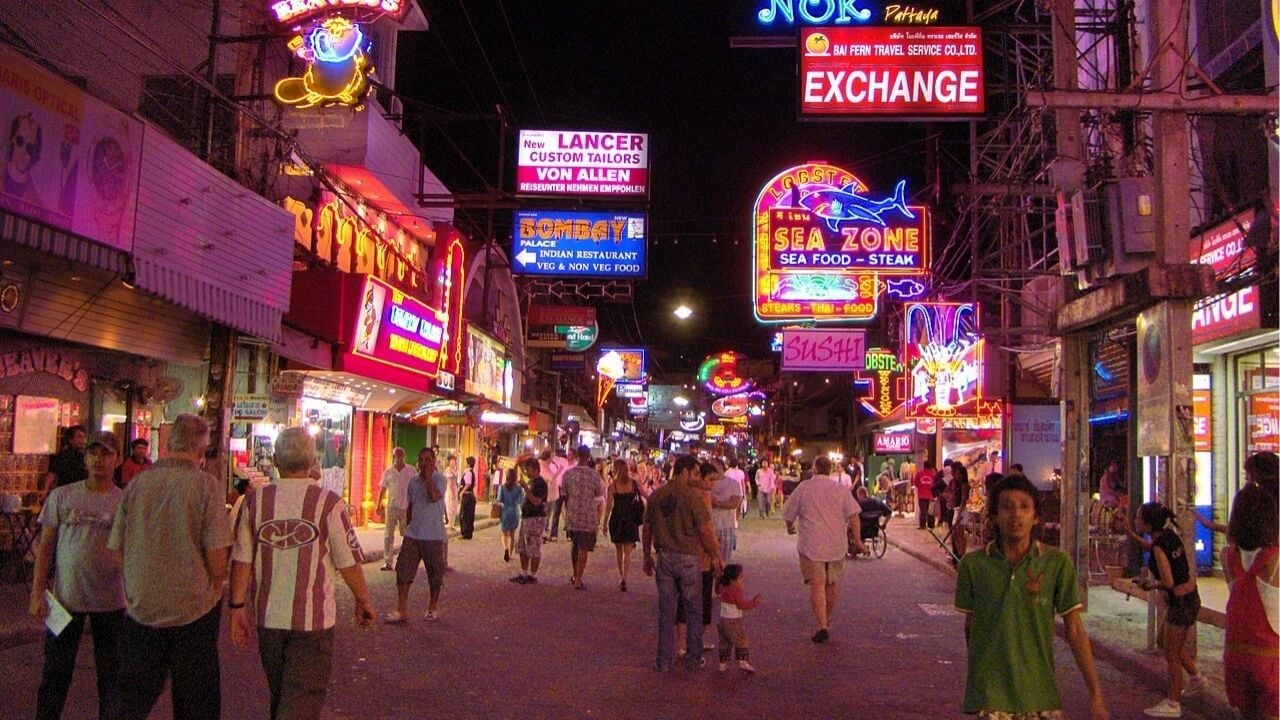
Thailand offers services and spectacles that are often more accessible, affordable, and diverse than in many Western or East Asian countries. From soapy massages and live shows to transgender performers and niche preferences, the industry casts a wide net. It is this variety, combined with low prices and relative ease of access, that continues to attract foreign customers.
How many sex workers are there?
There is no definitive answer. Given the illegality of sex work, numbers vary based on source and definition:
- UNAIDS (2019): ~43,000 (likely undercounted)
- UNAIDS (2015): ~147,000
- Royal Thai Police (2014): ~76,000 in licensed venues only
- Empower Foundation (NGO): 200,000 to 300,000
- WHO (2001): 150,000 to 200,000
- Chulalongkorn University (2004): 2.8 million (widely disputed)
Additionally, over 30% of sex workers are reportedly HIV-positive, and nearly half have experienced sexual violence at work but seldom report it due to fear of prosecution.
The ongoing legal debate

There have been periodic calls to legalise or at least regulate prostitution in Thailand. Supporters argue that regulation would:
- Improve access to healthcare and safety
- Allow workers to pay taxes and receive benefits
- Reduce exploitation, trafficking, and child abuse
But moral opposition remains strong. Many Thais see sex work as incompatible with Buddhist values and traditional norms.
Despite some policymakers and academics advocating for regulation, successive governments have either shelved or avoided formal proposals. For now, sex work continues to operate in legal limbo: illegal on paper, tolerated in practice.
Sex tourism in Thailand is not just about red-light districts and scandalous headlines. It is embedded in history, economics, law, culture, and international perception. It thrives because of a complex mix of poverty, demand, permissive enforcement, and global fascination.
And while the Thai government seeks to rebrand its image on the world stage, the reality on the ground is harder to change. Until deeper economic and social inequalities are addressed, and clear legal reform takes place, Thai sex tourism is likely to remain an open secret – one of the country’s most paradoxical and persistent industries.
As Thailand continues to grapple with its dual identity as a tourist haven and a hub for illicit industries, the conversation about sex work remains one of the most revealing windows into how law, morality, and economics collide in the Land of Smiles.
Also: The best nightclubs in Bangkok
Latest Thailand News
Follow The Thaiger on Google News:
